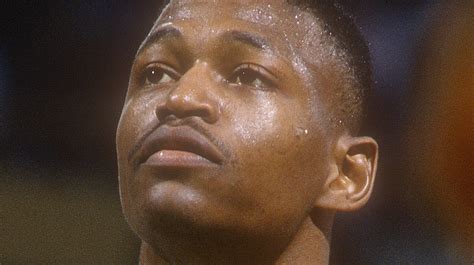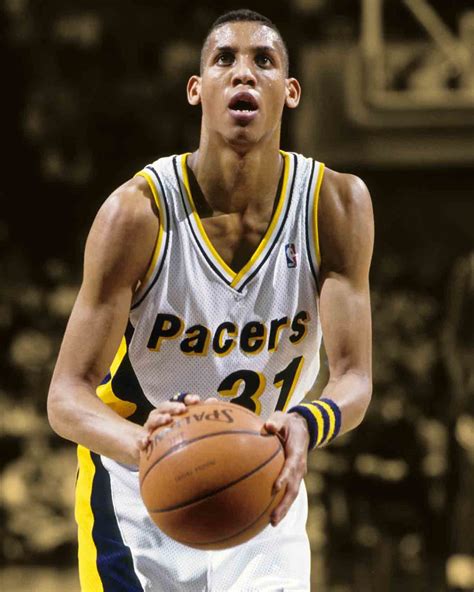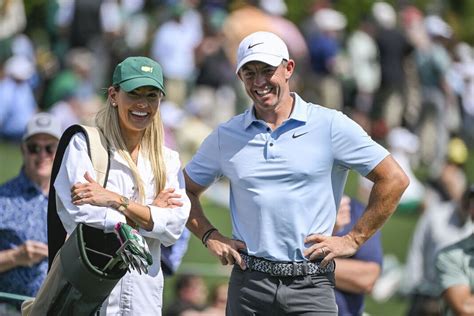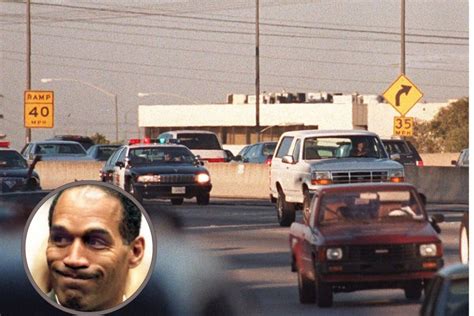
Reggie Miller, the Indiana Pacers legend and renowned NBA trash-talker, revealed the one player he consistently avoided verbally sparring with during his career: Michael Jordan. Miller admitted he “never said a word to him” out of respect for Jordan’s dominance and fear of the consequences.
Reggie Miller, known for his relentless competitiveness and prolific trash-talking throughout his 18-season NBA career with the Indiana Pacers, has revealed the one player he intentionally avoided engaging with verbally: Michael Jordan. Miller, now an NBA analyst for TNT, admitted he strategically steered clear of verbal confrontations with Jordan, citing a deep respect for the Chicago Bulls icon’s unparalleled skill and competitive intensity. The decision, Miller explained, stemmed from an understanding of Jordan’s psychological dominance and the potential repercussions of provoking him.
“I never said a word to him,” Miller confessed on a recent podcast appearance. This admission, surprising to many familiar with Miller’s reputation as one of the league’s most vocal players, highlights the profound impact Jordan had on his contemporaries. While Miller fearlessly trash-talked many opponents, he recognized that Jordan operated on a different level, both physically and mentally.
Miller’s decision wasn’t born out of fear in the traditional sense, but rather a calculated understanding of Jordan’s competitive nature. He knew that any attempt to rattle Jordan would likely backfire, resulting in an even more dominant performance from the Bulls superstar. Miller often observed how Jordan used trash talk and perceived slights as fuel to elevate his game, a tactic that proved devastating for opponents throughout the 1990s.
“It was out of respect,” Miller clarified. “I knew if I ever opened that door, he was going to step through it, and he was going to make my life a living hell.” This statement underscores the psychological warfare that often played out alongside the physical battles on the basketball court. Jordan was not only a supremely talented player but also a master of manipulating his opponents’ minds.
Miller elaborated that he witnessed firsthand how Jordan responded to perceived disrespect. He recalled instances where opponents would attempt to trash talk Jordan, only to be met with an immediate and overwhelming response on the court. Jordan would seemingly channel the negative energy into his performance, scoring at will and relentlessly defending against the offending player.
“I saw what he did to other guys,” Miller said. “They would try and get under his skin, and he would just destroy them. I didn’t want that smoke.” This acknowledgment further emphasizes the strategic element behind Miller’s silence. He understood that engaging with Jordan verbally would be a losing proposition, potentially disrupting his own game and providing Jordan with even more motivation to excel.
Throughout his career, Miller faced Jordan multiple times in high-stakes playoff matchups, including the memorable 1998 Eastern Conference Finals, where the Bulls ultimately prevailed in seven games. While Miller remained silent on the court, he undoubtedly prepared meticulously for these games, focusing on his own performance and strategy rather than engaging in psychological warfare.
Miller’s approach contrasts sharply with that of other prominent players who frequently engaged in trash talk with Jordan, such as Gary Payton. Payton, known for his tenacious defense and outspoken personality, often tried to get under Jordan’s skin, sometimes with limited success. While Payton’s strategy occasionally yielded positive results, it also ran the risk of provoking Jordan into a higher level of performance.
Miller’s decision to remain silent also reflects a deeper understanding of the game. He recognized that trash talk, while sometimes effective, could also be a distraction. By focusing solely on his own game and avoiding unnecessary confrontations, Miller was able to maintain his composure and contribute consistently to his team’s success.
The dynamic between Miller and Jordan highlights the complex interplay of respect, competition, and psychological warfare in professional sports. While trash talk is often seen as a sign of disrespect, it can also be a strategic tool used to gain an advantage. Miller’s approach, however, demonstrates that silence can be equally powerful, especially when facing an opponent as formidable as Michael Jordan.
Furthermore, Miller’s silent respect for Jordan is a testament to Jordan’s lasting impact on the game. Even years after Jordan’s retirement, his influence continues to be felt throughout the NBA. Young players often cite Jordan as an inspiration, and his competitive spirit remains a benchmark for aspiring athletes.
Miller’s story provides a valuable lesson about the importance of understanding one’s opponent and adapting one’s strategy accordingly. While trash talk may be effective in certain situations, it is not always the best approach, especially when facing an opponent as skilled and mentally tough as Michael Jordan. Miller’s silence, in this case, was a sign of respect, a strategic decision, and a testament to Jordan’s unparalleled dominance.
The incident also sparked debate among NBA fans and analysts, with many praising Miller for his honesty and strategic approach. Some argued that Miller’s silence was a sign of weakness, while others contended that it demonstrated a level of self-awareness and understanding that is rare in professional sports.
Ultimately, Miller’s revelation provides a fascinating insight into the mind of a competitive athlete and the challenges of facing one of the greatest players of all time. His decision to remain silent speaks volumes about Jordan’s aura of invincibility and the respect he commanded from his peers. It also underscores the importance of understanding the psychological aspects of the game and adapting one’s strategy to maximize one’s chances of success.
The admission from Miller also raises questions about the nature of trash talk in the NBA. While some players view it as an essential part of the game, others consider it disrespectful and unnecessary. Miller’s story suggests that the effectiveness of trash talk depends on the individual player, the opponent, and the specific situation.
In conclusion, Reggie Miller’s revelation about his silent respect for Michael Jordan provides a compelling narrative about the complexities of competition, respect, and psychological warfare in the NBA. His decision to avoid verbal confrontations with Jordan underscores the profound impact Jordan had on his contemporaries and the enduring legacy he left on the game. It highlights the importance of strategic thinking and self-awareness in professional sports and offers a valuable lesson about the power of silence in the face of greatness.
Expanded Context and Analysis:
Reggie Miller’s confession about avoiding trash talk with Michael Jordan offers a unique lens through which to examine the dynamics of the NBA in the 1990s. This era was defined by intense competition, physical play, and a psychological battleground where players sought every possible advantage. Jordan, at the peak of his powers, was the undisputed king of this landscape, a player whose dominance extended beyond his athletic prowess to encompass a profound understanding of the mental aspects of the game.
Miller, known for his clutch performances and fearless approach, was himself a formidable competitor. He thrived in pressure situations, often delivering game-winning shots and frustrating opponents with his relentless energy. However, he recognized that Jordan was a different beast altogether, a player who seemed to thrive on challenges and perceived slights.
The psychological dimension of Jordan’s game was well-documented. He would often use trash talk and perceived disrespect as fuel to elevate his performance, turning even the smallest slight into a personal challenge. This ability to harness negative energy and transform it into dominance was a key factor in his success.
Miller, witnessing this firsthand, made a conscious decision to avoid engaging with Jordan on that level. He understood that any attempt to provoke Jordan would likely backfire, resulting in an even more dominant performance from the Bulls superstar. This was not an admission of fear, but rather a strategic calculation based on a deep understanding of Jordan’s competitive nature.
The 1998 Eastern Conference Finals between the Pacers and the Bulls provides a compelling case study in this dynamic. The series was a hard-fought battle, with both teams pushing each other to the limit. While Miller remained silent on the court, he undoubtedly prepared meticulously for each game, focusing on his own performance and strategy rather than engaging in psychological warfare.
Miller’s approach contrasts with that of other players who frequently engaged in trash talk with Jordan. Gary Payton, for example, often tried to get under Jordan’s skin, sometimes with limited success. While Payton’s strategy occasionally yielded positive results, it also ran the risk of provoking Jordan into a higher level of performance.
The effectiveness of trash talk in basketball is a complex issue. While some players view it as an essential part of the game, a way to intimidate opponents and gain a psychological edge, others consider it disrespectful and unnecessary. Miller’s story suggests that the effectiveness of trash talk depends on the individual player, the opponent, and the specific situation.
For some players, trash talk can be a source of motivation, helping them to focus and elevate their performance. For others, it can be a distraction, disrupting their concentration and leading to mistakes. Similarly, some players are easily rattled by trash talk, while others are able to ignore it and focus on the game.
Jordan, as Miller recognized, was a player who thrived on trash talk. He seemed to relish the challenge of silencing his detractors and proving his dominance on the court. Attempting to engage him in a verbal battle was, therefore, a risky proposition.
Miller’s decision to remain silent also reflects a deeper understanding of the game. He recognized that trash talk, while sometimes effective, could also be a distraction. By focusing solely on his own game and avoiding unnecessary confrontations, Miller was able to maintain his composure and contribute consistently to his team’s success.
The relationship between Miller and Jordan, therefore, is a nuanced one. While Miller admired Jordan’s skill and competitive spirit, he also recognized the potential dangers of engaging with him on a verbal level. His decision to remain silent was a sign of respect, a strategic calculation, and a testament to Jordan’s unparalleled dominance.
Furthermore, Miller’s story highlights the importance of self-awareness in professional sports. He understood his own strengths and weaknesses, and he tailored his strategy accordingly. He knew that he was a skilled shooter and a tenacious competitor, but he also recognized that he was not a match for Jordan in the realm of psychological warfare.
This self-awareness allowed Miller to focus on his own game and avoid getting drawn into unnecessary confrontations. It also enabled him to contribute consistently to his team’s success, even in the face of formidable opponents.
In conclusion, Reggie Miller’s revelation about his silent respect for Michael Jordan provides a compelling narrative about the complexities of competition, respect, and psychological warfare in the NBA. His decision to avoid verbal confrontations with Jordan underscores the profound impact Jordan had on his contemporaries and the enduring legacy he left on the game. It highlights the importance of strategic thinking and self-awareness in professional sports and offers a valuable lesson about the power of silence in the face of greatness. The story serves as a reminder that true competition involves not only physical prowess but also mental fortitude and a deep understanding of one’s own limitations and strengths. By recognizing Jordan’s superior mental game, Miller strategically positioned himself to contribute to his team’s success without falling victim to Jordan’s psychological tactics. This approach underscores the multifaceted nature of success in professional sports, where strategic thinking and self-awareness are as critical as athletic talent.
The NBA landscape has evolved since Miller and Jordan’s era, but the core principles of competition and psychological warfare remain relevant. Today’s players can learn valuable lessons from Miller’s experience, recognizing the importance of understanding their opponents’ strengths and weaknesses and adapting their strategies accordingly. Whether it involves trash talk, silent determination, or a combination of both, the key to success lies in a deep understanding of the game and a willingness to adapt to the unique challenges posed by each opponent. Miller’s story is a testament to the enduring power of strategic thinking and self-awareness in the pursuit of excellence.
Miller’s reflections also prompt a broader discussion on the evolution of sportsmanship in professional sports. While trash talk has long been a part of the competitive landscape, there is a growing recognition of the importance of respect and ethical behavior. Miller’s decision to avoid trash talk with Jordan can be seen as a form of respect, acknowledging Jordan’s greatness and refusing to engage in tactics that could be perceived as disrespectful. This approach aligns with a broader trend towards greater sportsmanship and ethical conduct in professional sports, where athletes are increasingly encouraged to compete with integrity and respect for their opponents. Miller’s story, therefore, serves as a reminder that true competition involves not only a desire to win but also a commitment to fair play and respect for the game.
Frequently Asked Questions (FAQs):
-
Why did Reggie Miller choose not to trash talk Michael Jordan?
- Reggie Miller stated he avoided trash-talking Michael Jordan out of respect for Jordan’s unparalleled skill and dominance, fearing that provoking him would only lead to an even more devastating performance from Jordan. He admitted he “never said a word to him” because he “saw what he did to other guys” who tried to get under Jordan’s skin.
-
Was Reggie Miller generally known as a trash-talker in the NBA?
- Yes, Reggie Miller was renowned for his competitive nature and prolific trash-talking throughout his 18-season NBA career. His decision to avoid trash-talking Jordan was a strategic exception.
-
What was Michael Jordan’s reputation regarding trash talk?
- Michael Jordan was known for using trash talk and perceived slights as fuel to elevate his game. He often turned even minor instances of disrespect into personal challenges, driving him to dominate his opponents.
-
Did Reggie Miller and Michael Jordan ever face each other in significant playoff matchups?
- Yes, Reggie Miller and Michael Jordan faced each other in several high-stakes playoff matchups, including the 1998 Eastern Conference Finals, where Jordan’s Bulls ultimately defeated Miller’s Pacers in seven games.
-
How does Miller’s approach compare to other players who trash-talked Jordan, like Gary Payton?
- Unlike Miller, Gary Payton frequently engaged in trash talk with Jordan. While Payton’s approach occasionally yielded positive results, it also ran the risk of provoking Jordan into a higher level of performance, highlighting the different strategies players employed against Jordan.
-
What does Miller’s decision to avoid trash talk reveal about Jordan’s influence on his contemporaries?
- Miller’s decision underscores the profound impact Jordan had on his peers, demonstrating the respect and, to some extent, fear that Jordan inspired due to his extraordinary skill and competitive intensity. It highlights Jordan’s aura of invincibility and the strategic considerations players made when facing him.
-
Was Miller afraid of Jordan?
- Miller clarified that it wasn’t fear in the traditional sense, but rather a strategic understanding. He respected Jordan’s abilities and knew that provoking him would likely backfire, leading to a more dominant performance.
-
How did Miller’s approach to Jordan differ from other players in the NBA?
- Many players attempted to get under Jordan’s skin through trash talk. Miller, however, strategically avoided this, recognizing that Jordan thrived on such challenges. This contrasted sharply with those who tried to rattle Jordan, often unsuccessfully.
-
What lesson can be learned from Miller’s approach to facing Jordan?
- The lesson is the importance of understanding one’s opponent and adapting one’s strategy accordingly. While trash talk can be effective, it’s not always the best approach, especially against an opponent as skilled and mentally tough as Jordan.
-
What broader implications does Miller’s story have for sportsmanship in professional sports?
- Miller’s story highlights the importance of respect and ethical behavior in competition. His decision to avoid trash talk can be seen as a form of respect, acknowledging Jordan’s greatness and refusing to engage in tactics that could be perceived as disrespectful.
-
How does Miller’s strategic silence reflect on the nature of competition in the NBA?
- It shows that competition isn’t just about physical skill; it also involves psychological warfare. Miller recognized this and chose to focus on his own game, avoiding unnecessary confrontations with Jordan.
-
Did Miller ever express regret for not engaging in trash talk with Jordan?
- There’s no indication that Miller regretted his decision. He saw it as a strategic move that helped him maintain his composure and contribute to his team’s success.
-
How did Jordan respond to players who trash-talked him?
- Jordan often used trash talk as fuel, elevating his performance to dominate those who tried to get under his skin. He relished the challenge of silencing his detractors.
-
What impact did Jordan have on the mental aspect of the game?
- Jordan emphasized the importance of the mental game in basketball. He used psychological tactics to gain an edge, and his ability to harness negative energy made him a formidable opponent.
-
How did Miller balance his reputation as a trash-talker with his respect for Jordan?
- Miller strategically chose his battles. While he was known for trash-talking, he recognized that Jordan was a different case, and he adapted his approach accordingly.
-
Did Miller’s teammates ever question his decision not to trash-talk Jordan?
- There is no public record of his teammates questioning this strategy. It is likely they understood and respected Miller’s calculated approach to facing a player of Jordan’s caliber.
-
How did facing Jordan influence Miller’s career and playing style?
- Facing Jordan likely reinforced Miller’s strategic approach to the game and his understanding of the psychological aspects of competition, influencing his ability to adapt to different opponents and situations.
-
What is the lasting legacy of the Miller-Jordan dynamic in NBA history?
- The Miller-Jordan dynamic serves as a compelling example of the complexities of competition, respect, and psychological warfare in the NBA, highlighting the enduring impact Jordan had on his contemporaries and the strategic thinking required to succeed against him.
-
How has the NBA changed since the era of Miller and Jordan in terms of trash talk and sportsmanship?
- While trash talk still exists, there is a greater emphasis on respect and ethical behavior. Players are encouraged to compete with integrity, reflecting a broader trend toward greater sportsmanship in professional sports.
-
Can today’s NBA players learn anything from Miller’s strategy against Jordan?
- Yes, today’s players can learn the importance of understanding their opponents’ strengths and weaknesses and adapting their strategies accordingly, recognizing that the most effective approach may vary depending on the individual player and situation.
-
How did the media and fans react to Miller’s recent confession about Jordan?
- The reaction was generally positive, with many praising Miller for his honesty and strategic approach. Some debated whether it showed weakness or a rare level of self-awareness.
-
Did Miller ever have any off-court interactions with Jordan that shed light on their relationship?
- The article focuses primarily on their on-court dynamic, with no mention of significant off-court interactions.
-
How did Phil Jackson, Jordan’s coach, influence the psychological aspect of Jordan’s game?
- Phil Jackson was known for his ability to manage personalities and create a winning team dynamic, which likely enhanced Jordan’s focus and ability to use psychological tactics effectively.
-
Were there any specific instances where Miller witnessed Jordan “destroying” opponents who trash-talked him?
- While the article doesn’t detail specific instances, Miller mentioned seeing Jordan “destroy” those who tried to get under his skin, implying multiple occurrences throughout his career.
-
How did Miller prepare himself mentally before facing Jordan and the Bulls?
- Miller likely focused on his own performance and strategy, avoiding distractions and maintaining his composure, rather than engaging in psychological warfare. This was a deliberate approach to minimize Jordan’s potential psychological advantage.









